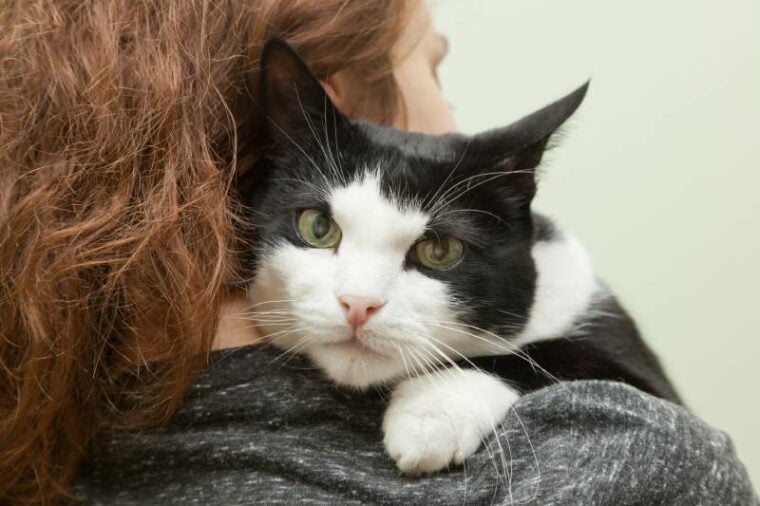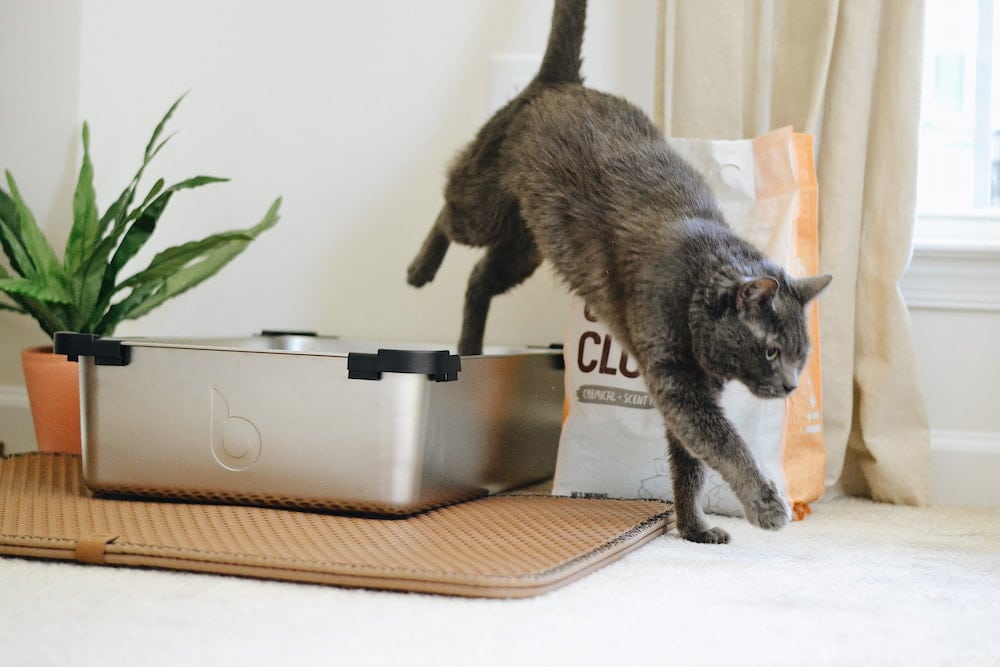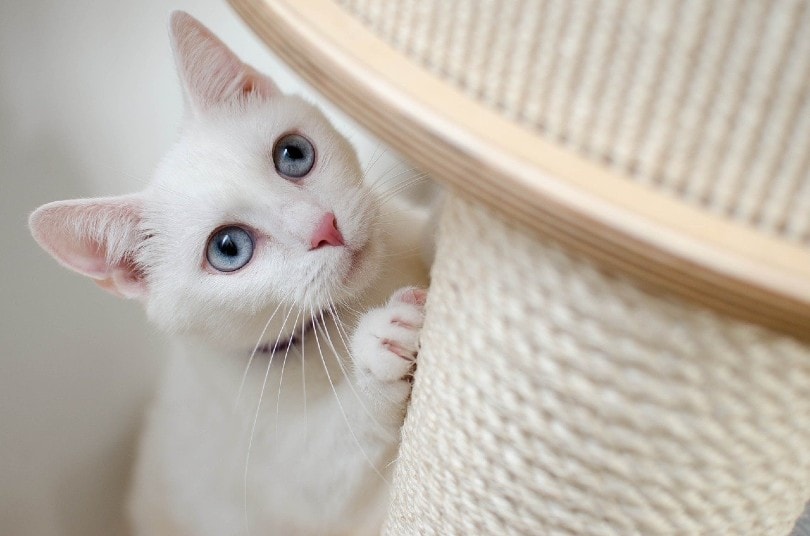
Our feline companions experience and perceive the world fundamentally different from humans. But even though cats probably can’t understand precisely what we’re saying, they know when something is wrong with their human. They sense when we’re stressed, frightened, anxious, or depressed.
Research indicates that cats adapt to their owners’ personality traits. Neurotic and stressed-out pet parents tend to have overweight cats with behavioral issues and health problems1. Studies have shown that cats reach out to their favorite person more when that individual appears depressed or agitated, and cats look to their owners for information about how to react to new situations and objects.
If you’re afraid or scared of something, your cat will most likely respond in a similar way. Cats not only know when we’re stressed, but our stress can also impact our pets’ health and well-being.

Indicators of Feline Stress
When cats become stressed, they often vocalize or groom excessively. Other indications include going to the bathroom outside of the litter box, as well as excessive vocalizing, scratching, and grooming. Some otherwise mellow kitties become aggressive towards people and other pets.
Cats often withdraw and isolate themselves when depressed or anxious. Many experience gastrointestinal difficulties, including diarrhea and constipation. Others begin to overeat or lose interest in food, and many stressed-out kitties sleep more than they usually would.


Preventing Feline Stress and Anxiety
Your anxiety can affect your cat, but when you’re feeling good, your cat may experience stress for other reasons.
New Food and Litter
Introducing new products gradually goes a long way when it comes to keeping your pet from becoming stressed out by food and litter changes. Most experts recommend gradually reducing the amount of one product and increasing the amount of the new food or litter over the course of 1 week or so.

Moving to a New Home
Plan to keep outdoor pets inside for about 1 month after you move to allow them plenty of time to adjust to their new home.
Consider taking a few of your cat’s toys and blankets to your new home ahead of time so your buddy will smell something familiar and comforting as soon as they arrive at their new space. Set up the litter box and a cozy corner for your pet to hang out well before your cat starts exploring their new digs to increase your pet’s sense of belonging.
Home Renovations
Prepare a safe place for your cat before home renovations begin. Make sure their spot is far away from where most of the noise will be coming from, and consider adding a nice high, comfortable perch so your cat can feel extra safe. Some cats feel most comfortable when nestled away up high.
It keeps them safe from predators and allows them to watch over their “territory.” If you’re bringing a new dog into your home, make sure your cat’s space is reliably dog-proof so your feline companion has a place to escape if things become too much.

A New Baby in the House
When it comes to babies, start introducing your pet to the smells and sounds they’ll be exposed to once your newborn arrives at least 1 month before the big event. This could include baby products, clothing, and toys. You can also play recordings of crying babies to help your pet get used to the sound.
Reducing Feline Stress
Exercise helps reduce stress and anxiety in some cats. It releases endorphins and often tires cats out, so they’re less inclined to engage in destructive anxiety-related behavior. Aim for multiple short, 10-minute play sessions per day.
You can also purchase food puzzles and interactive games to keep your cat mentally engaged, which is great for its overall mental health. However, even aloof felines need attention from their owners, and it’s best to spend some time every day playing with your cat to keep it happy.
Specially formulated pheromone sprays can help give your pet a sense of calm, and quiet music may provide anxiety relief. Classical music and selections specifically developed for cats often reduce feline anxiety.
If you’re concerned about your cat’s behavior, take your pet to the veterinarian for a full examination to ensure that its stress is not a health concern. If your pet is diagnosed as suffering from stress, your veterinarian can provide guidance on supplements, including l-theanine, an amino acid that may reduce feline anxiety. If the condition doesn’t improve with conservative treatment, there are several prescription options your veterinarian may suggest.

Conclusion
Cats know when we’re stressed, depressed, scared, or anxious. Cats also mirror our emotions. Stressed-out and depressed owners often have cats that are overweight and struggle with chronic diseases and behavioral issues. There are several things you can do to help your pet manage their stress, including providing them with a cozy, safe place to hide out, ensuring they get sufficient exercise, and providing mentally stimulating toys to keep your buddy’s mind engaged.
Featured Image Credit: Olesya Kuznetsova, Shutterstock





